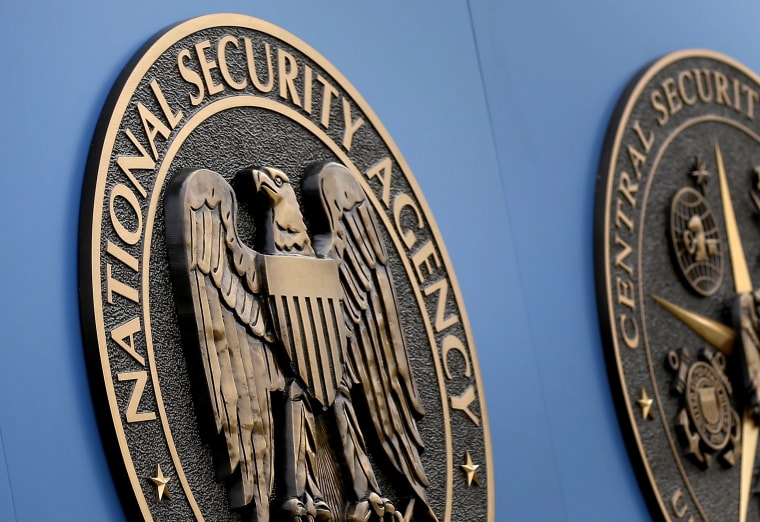Upon taking office three months ago, President Joe Biden and his team didn't just confront historic challenges related to a pandemic and the economy. They also faced a real personnel challenge.
Like every new administration, Biden and his aides had to take on the task of finding qualified officials to fill key posts throughout the executive branch, but this year, the new president also had to deal with officials appointed by his predecessor who were unlikely to be valued members of the Democrat's team.
And so, a gradual process began in which the new administration cleaned house, at least to the extent possible. Two weeks after Inauguration Day, for example, Defense Secretary Lloyd Austin made a clean sweep of the Pentagon's Trumpified advisory boards.
Around the same time, the National Security Agency put its top lawyer, Michael Ellis, on administrative leave. As the Washington Post reported over the weekend, Ellis has now resigned.
The NSA director, Gen. Paul Nakasone, had placed Ellis on administrative leave the day President Donald Trump left the White House — just as Ellis was taking up the position. The reasons: a pending Pentagon inspector general probe, an official told The Washington Post at the time, and a security inquiry into Ellis's handling of classified information, according to a letter from Ellis's attorney to Nakasone, a copy of which was obtained by The Post.
Michael Ellis may not have a household name, but as regular readers know, his journey to the NSA was striking.
In 2017, Ellis' name first started appearing in national reports when he was accused of using his position in the White House counsel's office to feed sensitive information to then-House Intelligence Committee Chairman Devin Nunes (R-Calif.).
Two years later, Lt. Col. Alexander Vindman testified under oath that Ellis, a former Republican operative, was one of the officials responsible for transferring the infamous Trump/Zelensky call summary to the National Security Council's top-secret computer server.
Last fall, the day after Joe Biden was declared the winner of the 2020 presidential race, Team Trump tapped Ellis to serve as general counsel of the National Security Agency, but the news wasn't well received: Gen. Paul Nakasone, the NSA's director, didn't want Ellis for that post.
In response, Christopher Miller, Trump's acting Defense secretary, ordered the NSA director to install the Trump loyalist as the agency's top lawyer, whether Nakasone wanted him or not.
National security experts were not pleased, and it was easy to understand why: NSA general counsel is an important job, and not a position for partisan operatives.
With this in mind, it didn't come as too big of a surprise when Nakasone put Ellis on administrative leave literally the same afternoon as Biden's inauguration, at which point the NSA director no longer had to worry about Team Trump's directives.
There are still plenty of Trump appointees who've "burrowed" into career civil-service positions, but as of now, they won't be in the NSA's general counsel's office.

